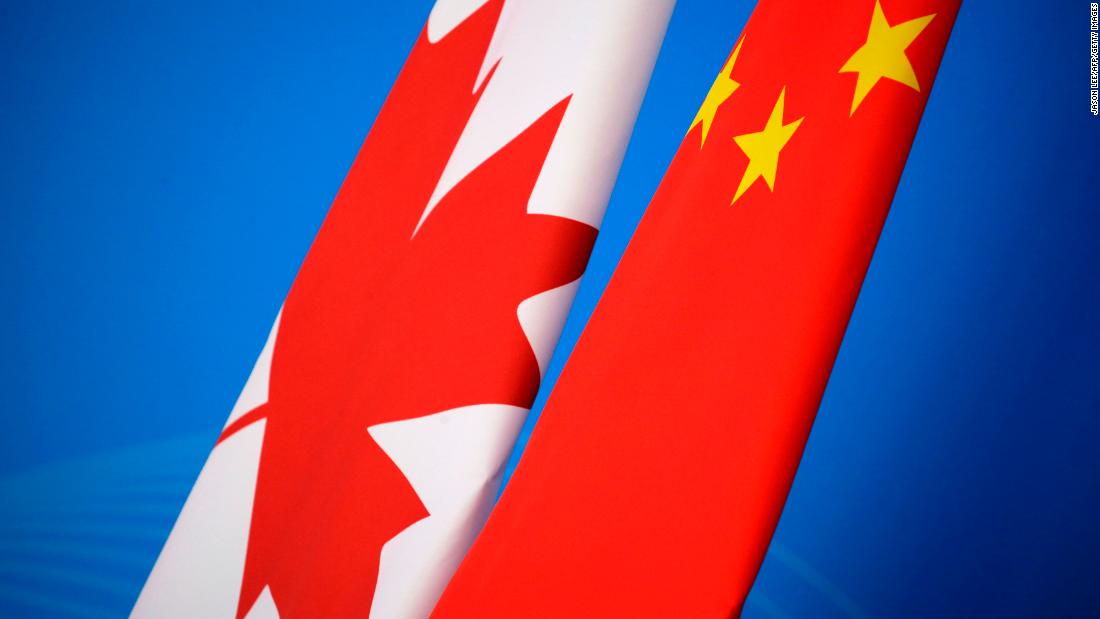
In an op-ed Wednesday, Lu Shaye contrasted Canada's statements over the detention of its citizens in China with the December arrest of Meng in Vancouver at the request of the US over alleged violations of Iran sanctions.
"Recently, China's competent authorities took compulsory measures in accordance with the law against two Canadian nationals who are suspected of engaging in activities that endanger China's national security. Some Canadians and some in the Canadian news media, in disregard of China's judicial sovereignty, accused China of arbitrary detention and demanded their immediate release," Lu said.
"However, on the prior groundless detention of Chinese citizen Meng Wanzhou by Canada at the behest of the United States, these same people made utterly different comments ... It's understandable that these Canadians are concerned about their own citizens. But have they shown any concern or sympathy for Meng after she was illegally detained and deprived of freedom?"
Since Meng's arrest, 13 Canadian citizens have been detained in China, according a report by the Globe and Mail.
Guillaume Berube, a spokesperson for Global Affairs Canada told the Canadian news organization last week that eight of those detained have since been released. The amount of detentions is largely in keeping with previous years.
Last week, China's chief prosecutor said there was "no doubt" that two detained Canadians, Michael Spavor and Michael Kovrig, had broken the law and were being investigated on suspicion of "activities that endangered China's national security."
The Globe and Mail reported Wednesday that Canadian consular officials met with Spavor this week for the first time, almost a month after his December 13 detention. While the country's ambassador met with Kovrig shortly after this detention, Canadian officials have had no further access, they told the newspaper.
Under the Vienna Convention, consular officials should be given access to citizens detained or imprisoned "without delay."
"I have recently heard a word repeatedly pronounced by some Canadians: bullying," Lu said in his op-ed. "They said that by arresting two Canadian citizens as retaliation for Canada's detention of Meng, China was bullying Canada. To those people, China's self-defence is an offense to Canada."
He continued that, "the reason why some people are used to arrogantly adopting double standards is due to Western egotism and white supremacy."
"In such a context, the rule of law is nothing but a tool for their political ends and a fig leaf for their practicing hegemony in the international arena. What they have been doing is not showing respect for the rule of law, but mocking and trampling the rule of law," Lu added.
The Meng arrest has poisoned traditionally strong relations between Ottawa and Beijing.
Canadian government officials have asked for, and received, additional security at their diplomatic outposts in China, while Canadian companies that do business with China are bracing for lower sales and even a boycott of Canadian products.
That the decline has come as a result of Canada responding to a US request has made it all the more awkward for Ottawa. Speaking to US President Donald Trump Monday, Canadian Prime Minister Justin Trudeau urged Washington to pressure China over the detention of its citizens.
"The Prime Minister thanked the President for the strong statements of support by the United States in response to the arbitrary detention of two Canadians in China," Trudeau's office said in a statement. "The two leaders agreed to continue to seek their release."
This story has been updated to correct the name of Meng Wanzhou.
Bagikan Berita Ini















0 Response to "China's ambassador accuses Canada of double standards, 'white supremacy' over Huawei"
Post a Comment